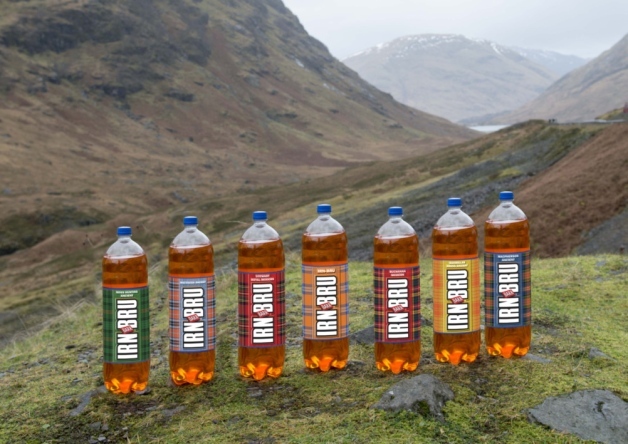Shares in listed drinks firms dropped sharply on the London market after the sugar tax announcement.
Irn Bru maker AG Barr, which also makes Tizer and St Clement’s, fell 5%, while Robinsons squash firm Britvic fell 3% and Vimto maker Nichols plunged as much as 11%.
Sugar giant Tate & Lyle was also under pressure, with shares falling 2%.
Simon Stevens, chief executive of NHS England, said of the move: “This bold and welcome action will send a powerful signal and incentivise soft drinks companies to act on the health consequences of their products.
“It is a major first step to what must be a comprehensive childhood obesity strategy that will help us shed pounds off our waistlines, and save pounds on future NHS costs.
“While no child needs a daily dose of sugary fizzy water, sadly soft drinks are now our children’s largest single source of diabetes-inducing teeth-rotting excess sugar.
“And since poorer children are twice as likely to be obese than better-off children, these measures should also cut child health inequalities. Obesity now affects one in five children, causes one in five cancer deaths, and already costs the NHS £5 billion a year – so obesity is the new smoking.”
Jamie Oliver has welcomed the announcement of a tax on sugary drinks, telling fellow campaigners: “We did it!”
The celebrity chef and health campaigner took to Twitter and Instagram to praise the move, unveiled by George Osborne as part of the Budget.
On Instagram, Oliver said: “We did it guys !! we did it !!! A sugar levy on sugary sweetened drinks …… A profound move that will ripple around the world ….business can not come between our Kids health !!
“Our kids health comes first ….. Bold, brave , logical and supported by all the right people….now bring on the whole strategy soon to come … Amazing news.”
In the surprise move, which goes against previous thinking from Prime Minister David Cameron, Mr Osborne said the tax would be brought in in two years’ time to give firms a chance to reduce the sugar in their drinks.
It is expected to raise £520 million which will be used to double the amount of funding for sport in every primary school, with secondary schools encouraged to offer more sport as part of longer school days.
The announcement comes before the Government publishes its childhood obesity strategy. The issue of a sugar tax has proved controversial and has been called for by health campaigners.
Mr Osborne told MPs: “Obesity drives disease. It increases the risk of cancer, diabetes and heart disease – and it costs our economy £27 billion a year; that’s more than half the entire NHS pay bill.
“One of the biggest contributors to childhood obesity is sugary drinks. A can of cola typically has nine teaspoons of sugar in it. Some popular drinks have as many as 13. That can be more than double a child’s recommended added sugar intake.”
He said manufacturers recognised there was a problem and had started to reformulate their products with less sugar.
“Robinsons recently removed added sugar from many of their cordials and squashes. Sainsbury’s, Tesco and the Co-op have all committed to reduce sugar across their ranges. So industry can act, and with the right incentives I’m sure it will.”
But Mr Osborne said he was “not prepared to look back at my time here in this Parliament doing this job and say to my children’s generation: I’m sorry. We knew there was a problem with sugary drinks. We knew it caused disease. But we ducked the difficult decisions and we did nothing.”
He said the new tax will be assessed on the volume of the sugar-sweetened drinks produced or imported by firms.
“There will be two bands – one for total sugar content above five grams per 100 millilitres; a second, higher band for the most sugary drinks with more than 8 grams per 100 millilitres,” he said.
Pure fruit juices and milk-based drinks will be excluded from the tax.
Mr Osborne added: “We’re introducing the levy on the industry which means they can reduce the sugar content of their products – as many already do. It means they can promote low-sugar or no sugar brands – as many already are. They can take these perfectly reasonable steps to help with children’s health.
“Of course, some may choose to pass the price onto consumers and that will be their decision, and this would have an impact on consumption too. We understand that tax affects behaviour. So let’s tax the things we want to reduce, not the things we want to encourage.”
